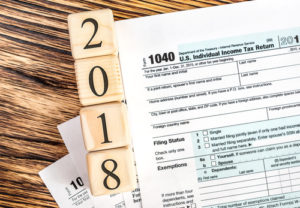FBAR Penalties Could Be Lessened Under New IRS Guidelines
According to the IRS, “if you have a financial interest in or signature authority over a foreign financial account, including a bank account, brokerage account, mutual fund, trust, or other type of foreign financial account, exceeding certain thresholds, the Bank Secrecy Act may require you to report the account yearly to the Department of Treasury by electronically filing a Financial Crimes Enforcement Network (FinCEN) 114, Report of Foreign Bank and Financial Accounts (FBAR).”
In other words, anyone who has money in a foreign bank account that exceeds $10,000 at any time during a given year will need to report that income to the IRS via an FBAR. However, recently, the IRS issued some new guidance regarding the penalties for those who don’t file an FBAR. According to reports, the IRS released a statement that noted: “For each year for which it is determined that there was a willful violation, examiners must fully develop and adequately document in the examination work papers their analysis regarding willfulness.”
For any case that involves willful violation for several years, it is up to the examiner to recommend the penalty length for each year the violation was determined to be willful. The IRS stated that typically the total penalty for the combined years under examination would not exceed ‘50 percent of the highest aggregate balance of all unreported foreign financial accounts during the years under examination.”
Meantime, an examiner can recommend more or less than the 50 percent threshold, but the total penalty cannot “exceed 100 percent of the highest aggregate balance.” There are obviously many possible scenarios and each case will be treated separately on its own merits and circumstances. The bottom line is you should still report your FBARs each year and report them on time. If you need help planning for and filing your FBAR then contact GROCO today at 1-877-CPA-2006, or by clicking here.
The Tax Cuts and Jobs Act and the Economy
The Tax Cuts and Jobs Act and the Economy The largest tax reform in recent history is now upon us and since it has already gone into effect, many people are wondering what comes next. While it won’t affect your tax bill this 2017 filling season you should expect to see some changes over the…
Bitcoin and your tax bill
Bitcoin and your tax bill Ripple. Ethereum. Litecoin. Dash. Monero. And the oh so famous Bitcoin. All of these are different cryptocurrencies which recently have been all the rage among investors, and with their extreme volatility, their future is constantly in question. What is Cryptocurrency Now for those who don’t know, cryptocurrency is a form of digital…
Are You Ready for the 2018 Tax Filing Season?
Are You Ready for the 2018 Tax Filing Season? The tax season is just about here and that means it’s already past time to start getting ready to file your return. With that in mind, here are some tried and true tips that you can use to help you get prepared. First off, start gathering…
What Does the New Tax Law Mean for Your Housing?
What Does the New Tax Law Mean for Your Housing? With the new tax reform bill finally in the books, the time for fighting over the bill is over. Now it’s time to let the fight over how it’s going to affect taxpayers, begin. There’s no question the new law is going to affect nearly…




